Trump 2.0: Indians Welcome His Return, European Think-Tank Finds
By Aditi Khanna, London Jan 15, 2025 22:10
A European think-tank survey reveals a majority of Indians view Donald Trump's return as US President positively, seeing it beneficial for peace and US-India relations.
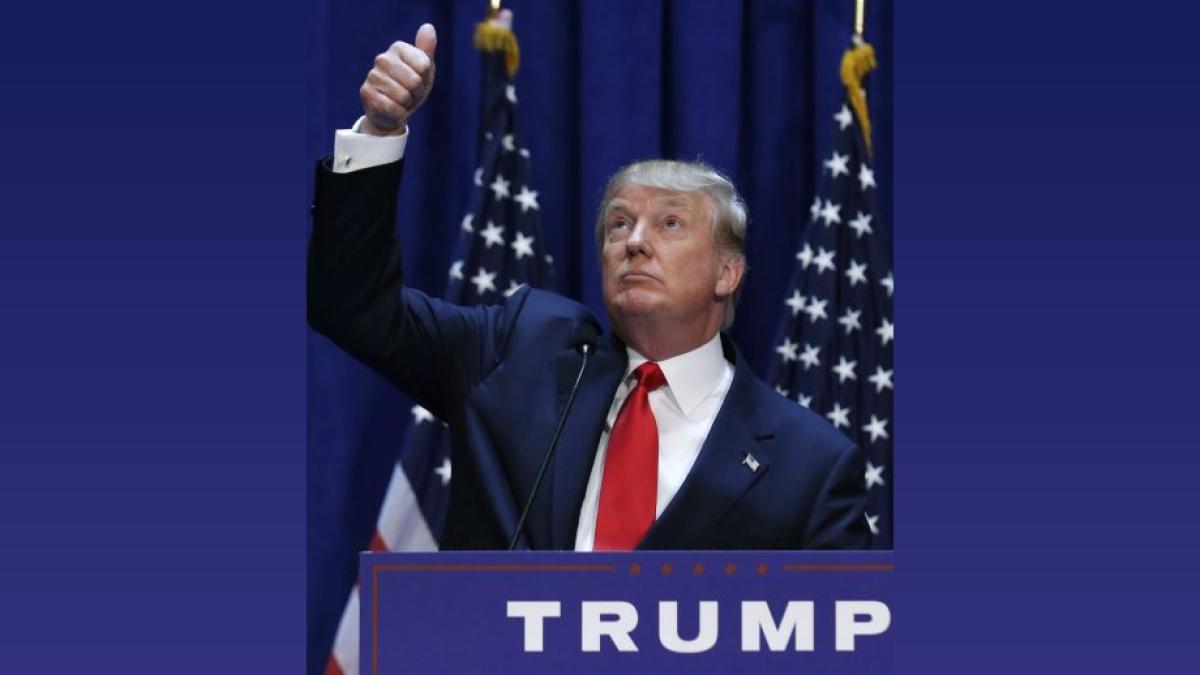
London, Jan 15 (PTI) A majority of Indians feel the return of Donald Trump as US President will be a "good thing" for peace in the world and US-India relations, according to a global poll by a European think-tank released on Wednesday.
The European Council on Foreign Relations (ECFR), in cooperation with Oxford University's Europe in a Changing World project, found that people in many countries around the world are upbeat about the second Trump presidency.
It identified India within the "Trump Welcomers" category, which reflects a view that Trump 2.0 would be good for India and the world.
"In countries from India and China to Turkey and Brazil, more respondents think Trump will be good for America, for their country and for peace in the world than think he will be bad for them, reads the study entitled 'Alone in a Trumpian World: The EU and Global Public Opinion after the US Elections'.
We identified five tendencies' for how people view Trump's return. The first are the Trump Welcomers. They view Trump's election victory as good for Americans and for peace in the world. This attitude is widespread in India and Saudi Arabia, but also popular in Russia, South Africa, China and Brazil. Most Trump Welcomers also see the incoming President as good for their own country, notes the multi-country poll.
In India, 82 per cent view Trump's election as a good thing for peace in the world, 84 per cent as good for their own country, and 85 per cent as a good thing for American citizens.
At the other extreme are the Never Trumpers those who see his victory as bad for Americans and for peace in the world. The Never Trumpers are a very rare breed globally, and they are concentrated in Europe notably the United Kingdom, where they constitute half the public. They often represent the progressive opponents of Trump (not just in Europe but also in Brazil, South Korea and Turkey), the study notes.
As a result, report authors Mark Leonard, Ivan Krastev and Timothy Garton Ash suggest European leaders may struggle to find internal unity or global allies if they try to shape a worldwide liberal resistance to the US president-elect. The authors identify trends that could assist the European Union (EU) against this backdrop, and help it become stronger and more united in the coming period.
First, its sense of certainty when it comes to its interests and shaping relations with powers. Secondly, global perceptions of its status as a world power and growing influence. And lastly, its potential for strategic partnerships, with countries such as Brazil, India and South Africa, where people broadly see the EU as both powerful and as an ally or a partner.
Europe is quite lonely in its anxiety about Trump's return to the White House. While many Europeans view the president-elect as a disrupter, others, elsewhere in the world, see him as a peacemaker. This position leaves Europe at a crossroads in its relations with the new American administration, said Ivan Krastev, co-author and Chair of the Centre for Liberal Strategies.
ECFR co-founder and director, Mark Leonard, added: Although many Europeans are freaking out about the prospects of Trump in the White House, most of the rest of the world believe his presidency will be good for the United States, the world and peace in Ukraine and the Middle East.
Rather than trying to lead a global resistance to Trump, Europeans should take responsibility for their own interests and find ways of building new relationships in a more transactional world.
The survey pulls data from 11 EU member states including Germany, France, Italy, Poland, Portugal, Spain, Denmark, Estonia, Romania, Bulgaria, and Hungary, plus India, China, Great Britain, Ukraine, Turkey, Russia, the US, Brazil, Saudi Arabia, South Africa, Indonesia, South Korea and Switzerland. It was commissioned through leading pollsters YouGov, Datapraxis and Gallup International Association and follows comparable survey reports of attitudes towards developing and existing global powers in previous years.
The European Council on Foreign Relations (ECFR), in cooperation with Oxford University's Europe in a Changing World project, found that people in many countries around the world are upbeat about the second Trump presidency.
It identified India within the "Trump Welcomers" category, which reflects a view that Trump 2.0 would be good for India and the world.
"In countries from India and China to Turkey and Brazil, more respondents think Trump will be good for America, for their country and for peace in the world than think he will be bad for them, reads the study entitled 'Alone in a Trumpian World: The EU and Global Public Opinion after the US Elections'.
We identified five tendencies' for how people view Trump's return. The first are the Trump Welcomers. They view Trump's election victory as good for Americans and for peace in the world. This attitude is widespread in India and Saudi Arabia, but also popular in Russia, South Africa, China and Brazil. Most Trump Welcomers also see the incoming President as good for their own country, notes the multi-country poll.
In India, 82 per cent view Trump's election as a good thing for peace in the world, 84 per cent as good for their own country, and 85 per cent as a good thing for American citizens.
At the other extreme are the Never Trumpers those who see his victory as bad for Americans and for peace in the world. The Never Trumpers are a very rare breed globally, and they are concentrated in Europe notably the United Kingdom, where they constitute half the public. They often represent the progressive opponents of Trump (not just in Europe but also in Brazil, South Korea and Turkey), the study notes.
As a result, report authors Mark Leonard, Ivan Krastev and Timothy Garton Ash suggest European leaders may struggle to find internal unity or global allies if they try to shape a worldwide liberal resistance to the US president-elect. The authors identify trends that could assist the European Union (EU) against this backdrop, and help it become stronger and more united in the coming period.
First, its sense of certainty when it comes to its interests and shaping relations with powers. Secondly, global perceptions of its status as a world power and growing influence. And lastly, its potential for strategic partnerships, with countries such as Brazil, India and South Africa, where people broadly see the EU as both powerful and as an ally or a partner.
Europe is quite lonely in its anxiety about Trump's return to the White House. While many Europeans view the president-elect as a disrupter, others, elsewhere in the world, see him as a peacemaker. This position leaves Europe at a crossroads in its relations with the new American administration, said Ivan Krastev, co-author and Chair of the Centre for Liberal Strategies.
ECFR co-founder and director, Mark Leonard, added: Although many Europeans are freaking out about the prospects of Trump in the White House, most of the rest of the world believe his presidency will be good for the United States, the world and peace in Ukraine and the Middle East.
Rather than trying to lead a global resistance to Trump, Europeans should take responsibility for their own interests and find ways of building new relationships in a more transactional world.
The survey pulls data from 11 EU member states including Germany, France, Italy, Poland, Portugal, Spain, Denmark, Estonia, Romania, Bulgaria, and Hungary, plus India, China, Great Britain, Ukraine, Turkey, Russia, the US, Brazil, Saudi Arabia, South Africa, Indonesia, South Korea and Switzerland. It was commissioned through leading pollsters YouGov, Datapraxis and Gallup International Association and follows comparable survey reports of attitudes towards developing and existing global powers in previous years.
Source: PTI
DISCLAIMER - This article is from a syndicated feed. The original source is responsible for accuracy, views & content ownership. Views expressed may not reflect those of rediff.com India Limited.
You May Like To Read
TODAY'S MOST TRADED COMPANIES
- Company Name
- Price
- Volume
- Vodafone Idea L
- 9.47 ( -0.42)
- 28334153
- YES Bank Ltd.
- 18.25 ( -1.24)
- 9525366
- Suzlon Energy Ltd.
- 52.56 ( -3.24)
- 9310880
- Thinkink Picturez
- 1.16 (+ 4.50)
- 8645050
- Srestha Finvest
- 0.66 ( -1.49)
- 8526864
MORE NEWS

KRBL Appoints Amitabh Bachchan as 'India Gate'...
KRBL Ltd. has announced Bollywood actor Amitabh Bachchan as the brand ambassador for...

RBI Ombudsman Disposed 95% Complaints in FY24
The RBI Ombudsman Scheme disposed of 95.1% of complaints received in FY24, with a focus...

UBS Group Buys Shares in 29 Companies for Rs...
Swiss investment bank UBS Group acquired shares in 29 companies including Fortis...



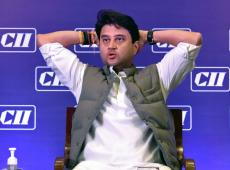
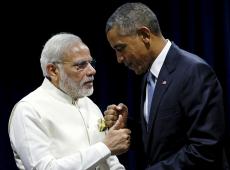
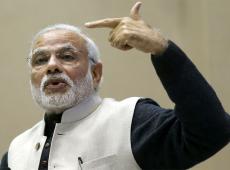
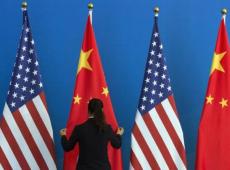
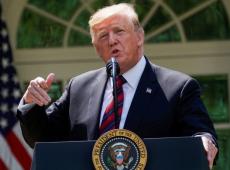
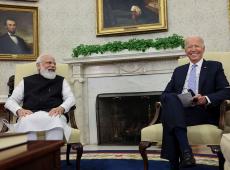
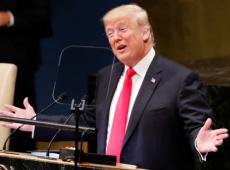

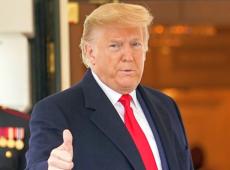
 © 2025 Rediff.com India Limited. All rights reserved.
© 2025 Rediff.com India Limited. All rights reserved.